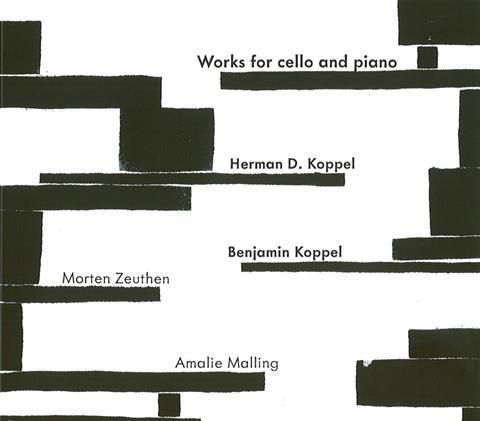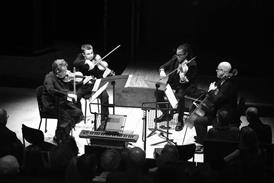
The Strad Issue: January 2011
Description: Inventive cello music by two generations of a Danish family
Musicians: Morten Zeuthen (cello) Amalie Malling (piano)
Composer: H.D. Koppel, B. Koppel
Herman D. Koppel (1908–98) was a self-trained Danish composer whose music was inspired by Hindemith, Bartók and Nielsen. He was also a concert pianist of some repute, and his collaboration with Danish cellist Erling Blöndal Bengtsson generated these three works, of which Ternio (1951) is the most accessible. Conceived in three succinct movements, it ends with an Allegro giocoso of particularly raw and rustic impact, qualities that are persuasively projected by Morten Zeuthen and Amalie Malling in this rhythmically taut performance.
Koppel’s music generally adhered to tonality, but in the Introduction, Theme with Variations and Epilogue for unaccompanied cello he embraced twelve-note technique. The material is certainly gritty, although sometimes the ideas are not as well defined as in the other works. However, Zeuthen charges the invention with energy, and the recording has great presence here.
The Cello Sonata is a more compelling work, and it demonstrates a sure handling of the medium. Again, the salient characteristics are linear, and there are touches here of Shostakovich. It’s not, however, a particularly distinctive style, though the Chaconne is a more convincing movement, its steely melancholy possibly betraying the scars of the war years when the Jewish Koppel evaded Nazi persecution by escaping to Sweden. Here Zeuthen and Malling are particularly eloquent.
The concluding item finds grandson Benjamin Koppel using the Introduction for solo cello as a basis for his Professor Herman’s Cellistic Imaginarium. Benjamin adds extra rhythmic impetus to Herman’s original, while still retaining the essential contrapuntal ideas. Yet despite Zeuthen’s formidably virtuosic delivery, the work seems to lack focus and requires greater textural variety to sustain one’s attention.
Joanne Talbot
































No comments yet